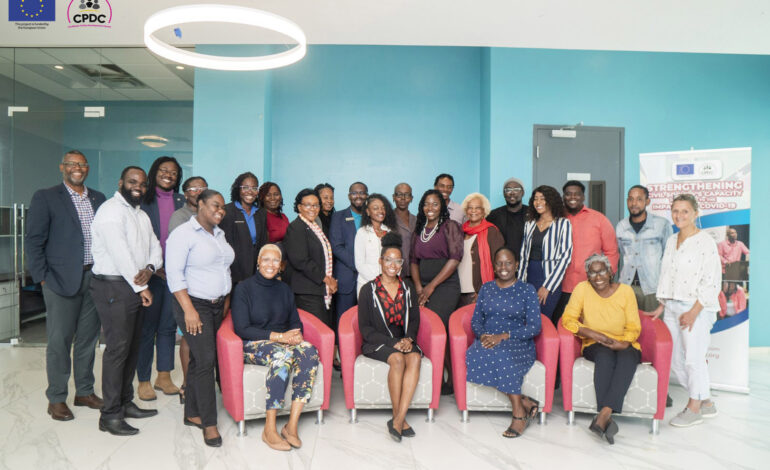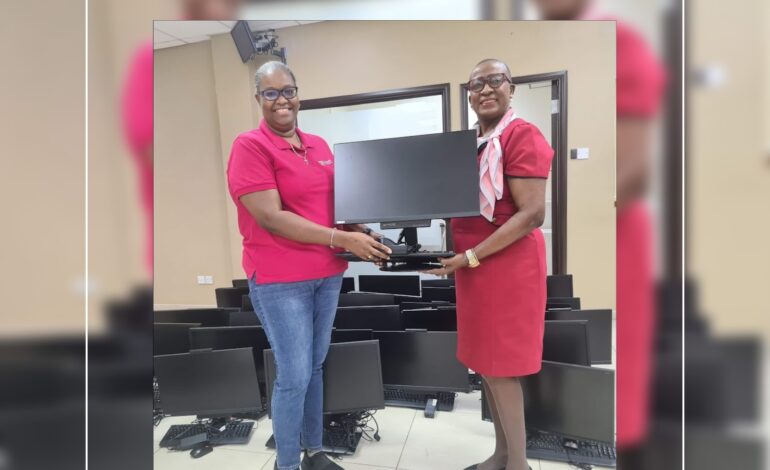
The success of any intervention is only as strong as its evaluation.
To that end, over twenty representatives from Antiguan civil society organisations have been trained to execute Monitoring and Evaluation exercises, and understand what donors are looking for to gauge a project’s achievements, after a National Capacity Building Workshop held from January 31 to February 3, 2023.
The three-day workshop was convened at the Sir John E St Luce Conference Centre in St John’s, Antigua and Barbuda, and formed part of the Strengthening Civil Society to Alleviate the Impact of COVID-19 on Vulnerable Communities in Barbados and the Eastern Caribbean project, also referred to as the Strengthening Civil Society Capacity (SCSC) project. It aims to support regional civil society organisations as they rebuild and retool from the severe socioeconomic fallouts of the COVID-19 pandemic. The two-year initiative is managed by the Caribbean Policy Development Centre and is funded by the European Union.
CPDC Project Officer, Christon Herbert, explained that the training was developed as a result of key findings from the 2021 CPDC Institutional Assessment Report, where it was noted that there was limited technical capacity building available in the sector in light of the COVID-19 pandemic.
“Organizations reported the need for improved capacity in several areas — including monitoring and evaluation. Therefore, the workshop focussed on the development of essential M&E competencies among trainees with the aim of enabling them to improve their operations by reporting more comprehensively on program delivery and results,” he said.
Guided by seasoned Monitoring and Evaluation professional, Dr. Elizabeth Lloyd, participants were introduced to the foundations of the field, key definitions and the basics of implementing an M&E system.
Dr. Lloyd underscored that effective Monitoring and Evaluation is important for non-governmental organisations as it can assist them in making “confident” and informed decisions about the use of their resources, programming direction and how effectively they are meeting the needs of their beneficiaries.
“It is through M&E that organizations can ascertain the impact of their programmes, through a comprehensive analysis of the intended and unintended outcomes… M&E can help to determine the success or failure of a programme, help you set realistic targets for your programmes [and] help us to do things differently and better understand elements of programme success,” she said.
Other topics covered under the eleven-module workshop included Data Collection Methods for M&E, Data Quality and Data Management, Developing M&E plans and Disseminating M&E Findings.
Senator the Honourable, Caleb Gardiner expressed gratitude for the in-depth and hands-on workshop, which provided the group with the tools needed to evaluate their projects and overall programming to fit the needs of their beneficiaries. This is in alignment with CPDC’s overall goals for the project, Herbert added.
“In the longer term, it is expected that CPDC’s capacity building efforts will result in greater efficiency and effectiveness of NGO programming,” he said.






